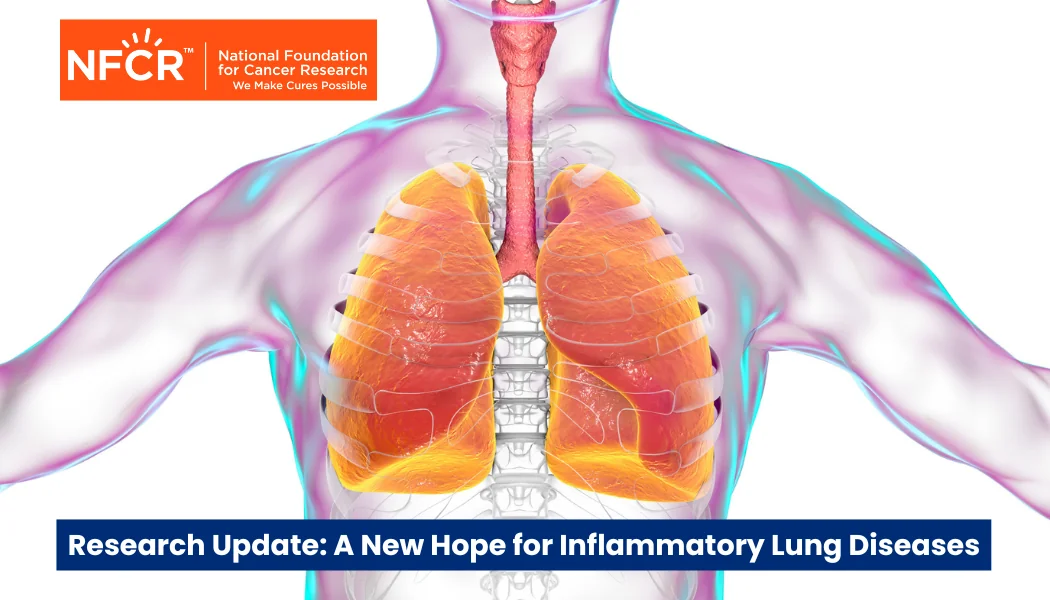Research Update: A New Hope for Inflammatory Lung Diseases

A new treatment may soon bring relief to people suffering from pulmonary sarcoidosis, a serious lung disease with few good treatment options.
The discovery comes from research led by Dr. Paul Schimmel of Scripps Research, a longtime scientist supported by the National Foundation for Cancer Research (NFCR). The team’s findings were recently published in Science Translational Medicine.
What is Pulmonary Sarcoidosis?
Sarcoidosis is a type of interstitial lung disease (ILD) where the immune system goes into overdrive, forming clusters of inflammatory cells—called granulomas—in the lungs. These can cause scarring and breathing problems. Current treatments mainly rely on steroids, which can have serious side effects like weight gain, bone loss, and a higher risk of infections.
What Did Paul Schimmel & Team Discover?
Dr. Schimmel’s team created a new therapy called efzofitimod, based on a natural protein found in lung tissue. This engineered version is designed to calm the immune system in a more targeted way. Instead of shutting down the whole immune system like steroids do, efzofitimod focuses on specific immune cells that cause inflammation.
Efzofitimod works by attaching to a receptor called neuropilin-2 (NRP2), found on certain immune cells that become overactive in lung disease. This helps reduce inflammation and lung damage while keeping the rest of the immune system working normally.
In lab and animal studies, efzofitimod reduced inflammation and scarring in several types of ILD. In a small clinical trial, patients with sarcoidosis were able to lower their steroid doses while keeping their lung function stable and reducing inflammatory markers.
“This isn’t a drug that shuts down the immune system,” said Dr. Leslie Nangle, co-lead author of the study. “It guides the immune response in a gentler, more natural way.”
While the study focused on sarcoidosis, scientists believe efzofitimod could also help people with other inflammatory lung diseases. It may even lead to a new class of more targeted immune therapies.
This research was partly supported by NFCR, showing how cancer research can lead to breakthroughs in other diseases, too.

About Paul Schimmel
Dr. Paul Schimmel, a distinguished biophysical chemist, has been collaborating with the National Foundation for Cancer Research (NFCR) since 1994. His research focuses on aminoacyl-tRNA synthetases (aaRS), enzymes crucial for gene expression. Supported by NFCR funding, Dr. Schimmel and his collaborator, Dr. Xiang-Lei Yang, have uncovered that certain aaRS enzymes are linked to diseases such as chronic and acute inflammation, neuropathy, and cancer progression. Notably, their work on SerRS has demonstrated its potential as an anti-tumor and anti-metastasis agent, offering promising avenues for cancer therapy.
Sign-up to Stay Informed About Cancer Research Breakthroughs with NFCR!
A world without cancer is possible. Help us turn lab breakthroughs into life-saving realities.

5.7 Million+
Donors who have fueled NFCR’s mission

$420 Million+
Invested in high-impact research & programs

36+ Labs & Hundreds of
Nobel Laureates & Key Scientists received NFCR funding, driving breakthrough research












